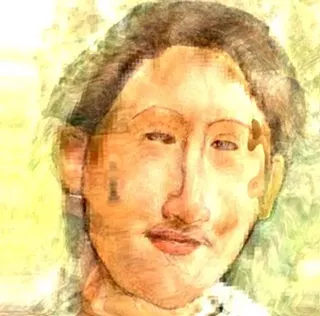Since the mid-1960s, Stoppard's plays have become more accessible but simultaneously more intellectual; the greatest challenge in presenting Stoppard's mature work, aside from mastering his vibrant word play, is to triangulate its natural location between head, heart and gut.
That's the problem with Beowulf Alley Theatre Company's current production of Stoppard's Arcadia, one of his finest plays. It emphasizes the script's comedic elements, slighting the characters' subtle interrelationships and motivations, and not quite conveying the thrill of using human brainpower.
The action takes place in a single room on an English country estate, but the events unfold in alternating scenes set nearly two centuries apart. In 1809, Thomasina Coverly, not quite 14, is less interested in parsing Latin with her tutor than learning the meaning of a mysterious phrase she has overheard, "carnal embrace." Said tutor, Septimus Hodge, initially dodges the question, particularly because the phrase had been applied to an encounter he'd enjoyed with another guest of the house. But Thomasina holds Septimus to a proper definition, for she is a tenacious and exceptionally bright pupil. Indeed, when she's not drawing sketches of Septimus and a pet tortoise, she's doodling mathematical equations that could lead to the development of the Second Law of Thermodynamics and chaos theory--could lead there, were she able to pursue those doodles.
But there are complications and distractions. Septimus has been carnally embracing the wife of an extremely minor poet in the house, a fellow named Chater. Meanwhile, Lord Byron is lurking just offstage, and a landscape architect is also tramping across the grounds, about to transform the gardens from Classical symmetry into a wild new Romantic ideal, what one character calls "a gothic novel expressed in landscape." Classical Arcadia, all space and order, is about to be replaced by picturesque ruins, while Thomasina teases out a theory of entropy--wherein the universe itself loses its heat and tends toward decay and disorder.
In our own time, the estate is inhabited by rather odd descendants of Thomasina's family, including the scientifically inclined Valentine Coverly. Also present are an author-researcher named Hannah Jarvis and a pompous English-lit professor called Bernard Nightingale, prowling through papers that might demonstrate that Byron killed Chater in a duel, thus explaining the poet's sudden departure from England. Nightingale is more interested in academic celebrity than verifiable details, and even the number-crunching ecologist Valentine, a proper student of chaos theory, suggests that it isn't necessary to know the details, because in the end, the population as a whole does follow the rules.
In any study of human character, details are essential, and that's what the contemporary characters lack. Nightingale has no idea what really happened with (or without Byron) on this estate 200 years before; Hannah has the wrong idea about the identity of the madman who lived in the garden's "hermit hut"; and Valentine, struggling through a study of grouse populations, only slowly begins to perceive the importance of Thomasina's equations.
We in the audience may feel smug that we know much more about Thomasina's circle than does Nightingale, but there is also much that we do not know. For example, why does the never-seen Mrs. Chater drop her newfangled bloomers at every opportunity? It's a minor point, but Stoppard gives us conflicting clues to her intentions. It's just one more step in Stoppard's complicated dance around truth, meaning and motivation.
Poetry, fractals, landscape design--Arcadia abounds with intellect, and at times, you must simply trust Stoppard to know what he's doing and let him sweep you along. If you get too hung up on the play's intellectual content, you'll miss the very real passions that run beneath its glittering surface. That's also a danger if, as in this Beowulf Alley production, one focuses too much on Arcadia's comedy.
This is what director Dave Sewell has emphasized here, and as a result, what should be offhand wit gets overplayed, to the detriment of the story's emotional complexities. Arcadia isn't merely about physics and pedantry; it's about love, and the ultimate unknowability of anything or anyone. It's not so much a funny play as a bittersweet one, something conveyed very well by a student production at the University of Arizona early in this decade. That version featured Marissa Garcia perfectly cast as Thomasina; she came across as a very smart kid, lively and innocent, yet just beginning to understand the secrets of love and the universe. At Beowulf Alley, the very talented Sophie Gibson-Rush, a high school junior, can't meet Garcia's exceptionally high standard; she seems more conniving, and consequently comes across more as 23 than 13.
To varying degrees, the other actors in the large cast seem trapped in a farce. For example, the single-named Chax is very good with Nightingale's arrogant bluster, but he doesn't have a chance to peel down to the character's deeper layers. Only Chris Farishon as Hannah and Victoria McGee in a secondary role seem able to dip a toe into the play's more serious undercurrents.
So in the end, when Arcadia fades away in what should be a waltz of yearning and gentle sadness, lacking a joke to lob into the audience, this well-meaning production is left with nothing but entropy.







